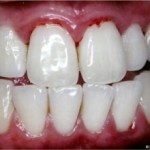Did you know that teeth whitening is the number one requested cosmetic service today and that its popularity continues to soar? A recent survey showed 80% of Americans aged 18 to 49 want whiter teeth, with women leading in this area at 85%. 6 out 10 believe a whiter, brighter smile would boost their self-confidence especially in the 18 to 24 age range. According to the American Academy of cosmetic Dentistry, Americans spent more than $1.4 billion on over-the-counter teeth whitening products last year alone.
One of the first things people notice when they meet someone new is their smile. Teeth Whitening has become an accessible and relatively easy way to instantly improve appearance, create a positive first impression, and achieve a more youthful and radiant appearance. Teeth can become discolored over a period of time. Teeth whitening is not a medical procedure, it does not result in healthier teeth, but it can result in whiter teeth. So are you in the process of bleaching your teeth and you just don’t know when to stop or when it is too much?
Bleaching your teeth can have side effects. Teeth can become sensitive (hot and cold sensitivity) and gum irritation can occur when you are using the bleaching solution, but this usually goes away when you finish your treatment. A study in the Journal of the American Dental Association found half of people who bleached their teeth experienced temporary sensitivity from whitening treatments, everything from mild tingling to burning gums to knee-buckling “zingers†and/or extreme sensitivity to sound or even air. What you are actually doing if you are over bleaching your teeth is that, you are actually drawing out all the nutrients that are supplied to your teeth. So with removing the nutrients, you are making yourself more accessible to sensitivity with the cold air that hits your teeth.
Also too you can actually bleach your teeth so severe that your teeth will actually start to become translucent on the edges. You can actually like stick your finger behind your tooth and see a little shadow so if you start to notice these signs that is something that you actually want to make yourself more aware of, that you might need to back off on bleaching your teeth.
Bleachers should aim for a color that matches the whites of their eyes, suggests Martin Zase, president of the American Academy of Cosmetic Dentistry and a dentist in Colchester, Conn. And they should also make sure they consult with a dentist, even before using over-the-counter products, because those who go it alone often end up going too far. “Your teeth look better so you do it some more and you don’t know when to stop,†Zase says.
A mouthpiece that does not fit well may hurt your gums. Other, less frequently encountered, side effects that have been reported by patients are: sore throat, tooth pain, tingling of the tissues, and headaches.
People are increasingly opting for over-the- counter bleaching kits instead of visiting their dentist, putting them at risk of stomach problems, mouth infections, toothache, gum- shrinking and nerve damage, according to new research.
‘Many over-the-counter bleaches have a very high acidity, which can damage the teeth,’ says Dr Phil Stemmer of the Teeth For Life Clinic in London. He has treated a number of celebrity patients including Jude Law, Liam Gallagher, Patsy Kensit and Sadie Frost.
‘Some products are also abrasive and while they remove surface stain, they also take out the enamel so that you end up, in effect, spitting teeth down the sink.
‘We are seeing a lot of people who have tried the DIY approach but it hasn’t worked. They tend to suffer tummy upsets from swallowing the stuff, as well as damaging their teeth and getting white spots.’
They may also get spotted or patchy teeth as a result of the uneven spread of bleach.
‘For someone with deep cavities, the bleach can have an unimpeded route to the blood vessels, nerves and bone at the root of the tooth.
It can potentially cause a bad toothache or precipitate an infection,’ says Dr David McFadden, professor of oral and maxillofacial surgery at the University of Texas, who has researched the effects of the DIY kits.
The average recommended treatment whenever it comes to bleaching your teeth is once a day for 30 minutes depending on the strength of the bleach so if you have a higher percentage concentrate of the bleach say a 22% or say a 15% then you definitely only just want to bleach your teeth once a day for about 30 minutes and if you are following those guidelines then you shouldn’t have any problems.


